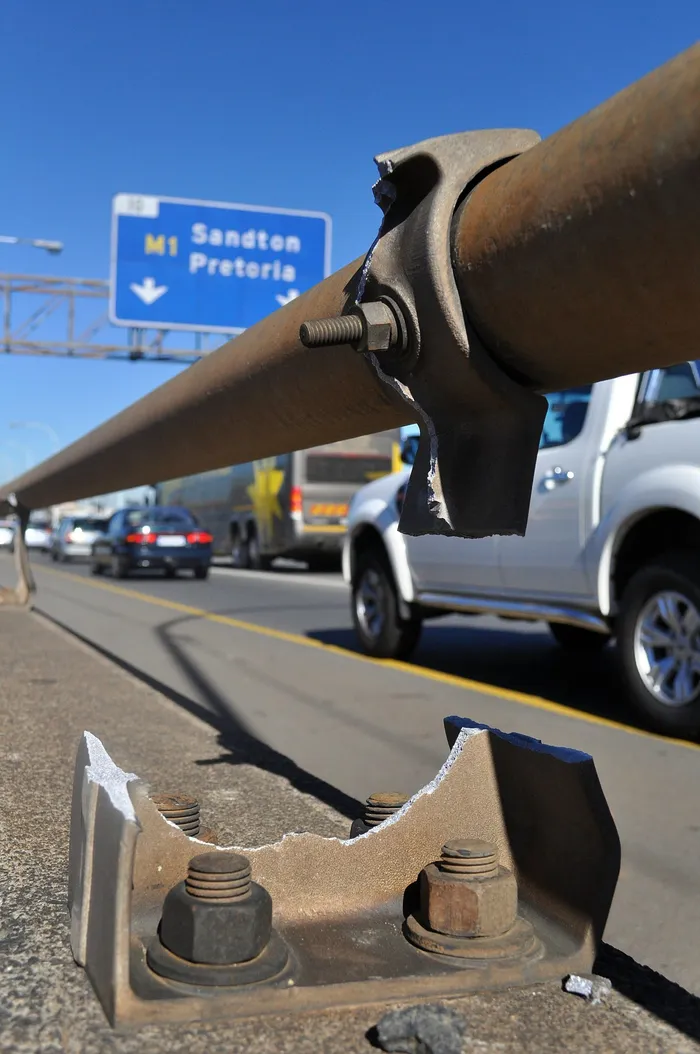Scrap metal export ban: curbing damage to SA’s infrastructure

Picture: Timothy Bernard/African News Agency (ANA)
By Zelna Jansen
High metal prices are the key driver of theft and motivate criminal syndicates to extract metal from installed infrastructure and sell it for scrap. This is further fuelled by the high global demand for the metal.
On average 102 million tons of scrap metals were traded globally from 2013 to 2015, at an average value of $77,8 billion. Once the metal is melted down, it is difficult to identify the source of the scrap metal, which makes it easy for criminals to get away.
This theft impacts all of us, whether it is the long hours without electricity, workers’ wages being reduced because they were not able to work, to the railway system that is in some parts of the country not operating. The latter places additional pressure on the public transport system. A viable transport system is needed for any economy to thrive. Cable theft and the destruction it brings to infrastructure is now seen as akin to treason.
A groundswell has risen calling on the government to do something and in response to this. The Department of Trade and Industry released draft policy proposals on measures to restrict and regulate trade in ferrous and non-ferrous metals waste, scrap and semi-finished ferrous and non-ferrous metal products to limit the damage to infrastructure and the economy.
The draft policy paper points out that copper theft from the country’s rail network and electricity grids imposed an annual economic cost exceeding R45 billion in 2020/2021. The cost of the theft can be illustrated as follows: the damage from stolen steel lattices alone was R100 million in 2020/2021, heavy steel railway tracks are under constant attack, with more than 200 km of tracks stolen in November 2021 alone and other major targets include street lights, street robots, manhole covers, balustrades and railings.
The threat of 20 years imprisonment and other stringent measures have not curbed the number of attacks on private and government infrastructure. In fact, the incidence of these attacks is on the increase.
The draft policy paper looks at the present value chain and loopholes and proposes several measures aimed at curbing the theft of cable and other metals in a three-phased approach.
In Phase One, there will be a temporary six-month ban on the export of scrap on ferrous and non-ferrous waste. In terms of the present draft, this ban will not be applicable to existing permit holders and those who applied before the date of the ban and are granted a permit. The temporary ban will be introduced through a notice and trade policy directive published in terms of the International Trade Administration Act of 2002 (ITA Act).
The definition of waste and scrap metal will be expanded to create new tariff codes for waste, scrap metal and semi-processed metal products. This will enable appropriate enforcement and monitoring. An export permit control system will apply to the export of all ferrous and non- ferrous semi-finished goods. A permit system for the import of furnaces and other scrap transformation machines will be introduced through the ITA Act. In this regard, law enforcement authorities will undertake unannounced inspections to verify that the furnace or other devices are not being used to transform stolen metals.
Phase two looks at imposing more rigorous regulations in respect of dealing in scrap and semi-finished metals and strengthening reporting requirements for metal dealers and recyclers.
Under this phase, the government is also considering and enforcement of the registration regime for scrap metal sellers and enhanced registration requirements. This could include registration as scrap metal buyers and sellers will only be granted to businesses that have a satisfactory Tax Compliance Status. Another measure considered is enhanced reporting requirements whereby an input-output reporting system will be introduced that will be used both for purposes of compliance monitoring under the Second-Hands Goods Act and for monitoring exports of scrap metal and semi-finished products. Restrictions on ports and land borders will be enforced.
Phase three envisages potential amendments to the Second-Hand Goods Act and related legislation as well as the possible introduction of a new dedicated metal trading statute to further strengthen the fight against metal theft and damage to infrastructure. The use of cash in scrap metal transactions will be prohibited.
It is anticipated that the temporary prohibition on exports of waste and scrap metal, and the creation of a permit system for the export of semi-finished metal, in phase one will lead to a material reduction in the theft of metal from the country’s infrastructure.
It is also believed that the three interventions will divert significant volumes of scrap metal to the local market which will lead to lower scrap metal prices and in turn, to disincentive metal theft. Criminals and criminal syndicates will also face an increased risk of arrest as anyone in possession of waste, scrap or semi-finished metal will be required to present the appropriate registration certificate. The draft policy paper is open for public comments for 21 days from the date published which was 5 August 2022.
These measures will highly likely see a decrease in the theft of metal and cables. However, one must bear in mind that crime is fuelled by many factors and if those factors are not resolved, criminals and criminal syndicates are likely to find other illegal measures to make up for losses in their revenue streams.
Jansen is a lawyer. She is CEO of Zelna Jansen Consultancy.
Related Topics: